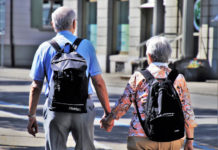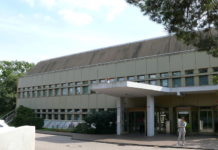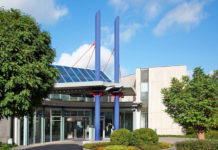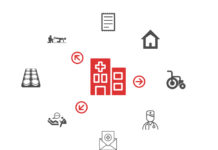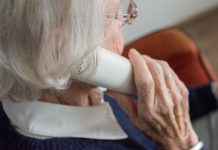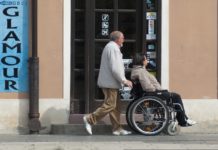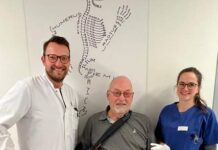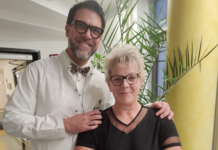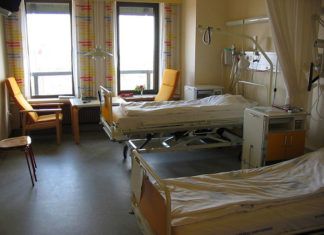
When tiredness or exhaustion is physically, emotionally or mentally severe, doctors call this condition the chronic fatigue syndrome. Affected persons cannot compensate their tiredness with sleep or other recovery methods. The causes of fatigue are not clear, but it often occurs as an accompanying illness or consequence of some chronic diseases and tumors. In that case, it’s called cancer or tumor-related fatigue.
Symptoms of fatigue
It’s not easy to diagnose fatigue because the well-known medical procedure cannot be applied. If a chronic disease is known in advance as a cause, fatigue can quickly be diagnosed as an accompanying illness. In some cases however, especially in the case of tumor patients, the symptoms of fatigue already occur months before the diagnosis of the tumor.
The American Fatigue Coalition created a list of eleven symptoms, of which at least six have to occur in order to diagnose fatigue. These are amongst others physical symptoms such as tiredness, general weakness or an increased need for rest. Mental restrictions are also counted among the criteria, such as disturbed concentration or reduced performance of the short-term memory. These are accompanied by psychological symptoms such as a lack of motivation, frustration due to the reduced performance or difficulties in dealing with everyday tasks. Another typical sign of fatigue is a lack of energy.
Fatigue patients have these eleven symptoms
Cancer as a cause of fatigue
Altogether, 80 percent of cancer patients suffer from fatigue. In that case, fatigue is acute, because it is either caused by the tumor or its treatment. Nowadays, we know that certain kinds of tumors such as lymphomas represent a higher risk of fatigue than testicular cancer for example.
The tumor alters the biochemistry of the body. Factors such as signaling molecules or hormones which stimulate the growth of the tumor impact the patient’s general health and slow down important metabolic processes. To maintain these on their regular level, the body has to work more. The additionally used energy is perceived as exhaustion. The tiredness cannot be compensated even with longer sleeping time and thus becomes a fatigue syndrome.
Not only the tumor itself, but also the cancer treatment can cause fatigue. When you start a radiotherapy or chemotherapy, not only the tumor is exposed to the radiation but also the surrounding tissue and basically the whole body. The additional strain on the body causes the fatigue which then represents a side effect of the treatment.
The blood formation is especially affected by a tumor: the red blood cells which supply the body with oxygen are called erythrocytes. After approximately 120 days, an erythrocyte ages and doesn’t function anymore. It is then discarded and eliminated by the spleen.
In the meantime, new blood cells are already being formed in the bone marrow. It takes almost ten days until these are mature and can transport oxygen throughout the body. This process is mainly controlled by a chemical messenger called erythropoietin. During cancer treatment, less erythropoietin is produced, and therefore, also less erythrocyte are produced.
As a consequence, anemia occurs, there are too few erythrocytes that are required for the optimal supply of oxygen for the organs. In addition, not only the formation of red blood cells is affected, but also the formation of white blood cells, the leucocytes. These are responsible for the defense function of the body. Thus, in the long-term, the body has less oxygen at its disposal and the defensive reactions are slowed down as well.
Due to the generally reduced oxygen supply of the body, even during low physical activity, the few erythrocytes are not able to cover the increased need for oxygen in the heart or the muscles. The effort of the circulation to compensate for the physical activity is thus bigger. As a consequence, the body gets tired quicker.
Even if the fatigue lasts several months, it is still regarded to be acute, as it is caused by the underlying disease, the tumor.
After cancer: Long-term fatigue
Even if the treatment is completed, 40 percent of the patients say that they still suffered from fatigue for several years. This is not a consequence of the underlying disease anymore, which is why in the case of long-time fatigue, other causes are analyzed. In other cases, fatigue occurs after the disease for the first time. The feeling of being overwhelmed after the disease can be the cause for chronic fatigue.
Fatigue in association with other diseases
Other diseases that can cause fatigue are mainly chronic diseases such as the auto-immune disease systemic lupus erythematosus which causes inflammations in the joints, the nervous system and organs. Between 50 and 80 percent of patients suffering from other auto-immune diseases such as rheumatoid arthritis, ankylosing spondylitis or multiple sclerosis also suffer from fatigue. Besides that, fatigue is one of the most frequent long-term consequences after an infection with the Covid-19 virus. There is ongoing clinical research about the extent and intensity in connection with Covid-19.
How can fatigue be treated?
If you think that you’re suffering from fatigue, contact your treating doctor. They are also your contact person for tumor-related fatigue and can supply information about existing treatment possibilities.
Psychotherapy
During the diagnosis and the treatment of the tumor, the psychotherapist helps the patient and their family in finding practical answers to questions regarding everyday life. When the treatment is completed, psychotherapy supports the rehabilitation and the aftercare of the treatment. Physical, neurological and psychological exercises can promote your memory and motivation. For example, writing with your non-dominant hand or detecting geometrical figures in abstract paintings supports the formation of new nerve connections in the brain.
Exercise as treatment
As is the case for many diseases, exercise also helps in the case of fatigue. The patient should watch whether the exhaustion increases on the day after the exercise or not. If this is not the case, the therapeutic exercise can be increased by one step on the following day. Like this, the patient can determine the optimal level of exercise. The newly gained certainty about the current strength of the own body also strengthens the motivation and joy in life.
Medicine
When a doctor prescribes medicine, fatigue has to be diagnosed unambiguously. If the causes that affect the extent of the fatigue are known, certain medicine can help. If for example an advanced anemia has been diagnosed, an additional intake of erythropoietin can improve the symptom complex as is the case for other anemia patients. Erythropoietin accelerates the production of red blood cells which supply the organism with oxygen.
If the patient has an underactive thyroids, which often occurs during tumor treatments, the function can also be stimulated with appropriate medicine or replaced by missing hormones. The lack of vitamins can also be compensated with the administration of injections or pills.
Since 2006, the German Fatigue Association (Deutsche Fatigue Gesellschaft) conducts research on the effect of the amphetamine methylphenidate. It is still being examined in clinical studies.
Rehabilitation
By now, there are some rehabilitation programs which aim at reintegrating people affected by fatigue. It is not proven yet whether the rehabilitation is successful in the long term or whether it can keep its promise of treatment.
Especially for long-term fatigue, it’s important to attend psychotherapeutic treatment besides a rehabilitation program when coping with the disease. Patients already report great relief when they know that what they’re sensing and feeling is medically regarded as an illness.
The exchange in a self-help group and the possibility to speak freely leads to an improvement of the syndrome for most patients. The patient should be activated additionally in combination with therapeutic exercise and cognitive exercises.
It’s essential to pay attention to the individual extent of the illness. If the body is overloaded, it feels the exhaustion even more severely. However, if the body is not challenged enough and the patient rather takes things easy instead, their fitness will worsen even further so that the fatigue will intensify. It’s important to recognize one’s physical borders and to accept them.
Living with fatigue
Family and relatives
For people suffering from fatigue, the right diagnosis is the most important thing. With a medical diagnosis, the patient and their relatives know that it’s a chronic disease which durably changes the patient’s life severely. The daily life has to be adapted to the new limited resources. It’s also important to explain and inform about the mental and psychical aspects of the fatigue. Only that way, solutions can be discussed with the family.
Work
Life changes abruptly when cancer is diagnosed. The treatment plans of chemotherapy and radiotherapy, often in combination with surgery are an enormous strain for the human body. A tumor doesn’t always mean that the patient is unable to work, but in most cases, it is very probable that the patient won’t be able to carry out their usual work and will be unable to work during the treatment.
When the cancer is not medically significant or is deemed to be cured, in 40 percent of the cases the fatigue still persists. Then, it is not acute anymore but chronic. Even if the tumor doesn’t affect the performance anymore, the effects of fatigue are so strong that a reintegration into the professional activity from one day to the next is not possible.
When the cancer as a basic diagnosis ceases to apply, obtaining a certificate of incapacity for work is not possible without problems anymore. There are no uniform recognized measures for the diagnosis of fatigue that doctors can adhere to in order to justify an inability to work. It’s exactly these evaluation criteria which are essential to certify a medically legitimate inability to work or to apply for early retirement.
The patients suffer from the lack of scientific explanations for this complex exhaustion syndrome. Therefore, every application for early retirement is still decided upon individually and requires an additional expert’s report from the German Fatigue Association.
In this article, Evelyn Kühne describes how she lives and works with fatigue after her breast cancer treatment.
Sources
18 Fragen und Antworten zu tumorbedingter Fatigue. Gesellschaft zur Erforschung tumorbedingter und anderer Erschöpfungszustände. https://deutsche-fatigue-gesellschaft.de/wp-content/uploads/2018/06/fatigue_18-fragen.pdf . Accessed: 29.06.2021
Fatique bei Krebs. Stiftung Deutsche Krebshilfe. https://www.krebshilfe.de/infomaterial/Blaue_Ratgeber/Fatigue-Chronische-Muedigkeit-bei-Krebs_BlaueRatgeber_DeutscheKrebshilfe.pdf . Accessed: 29.06.2021

